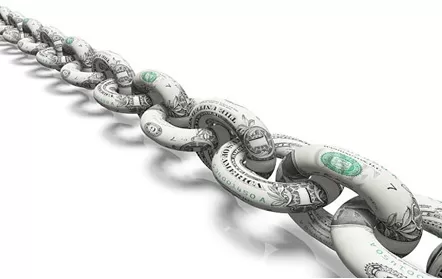Finance
What Determines the Strength of a Currency?

The strength of a nation’s currency is a natural indicator of its economic performance and stability. Changes in its value directly affect economic activity like investment, the price of goods, and lots more. It is essential to understand the internal and external factors that can influence the value of a nation’s foreign exchange value. This article discusses the various factors that determine a currency’s strength.
Factors That Determine the Strength of a Currency

Traders and Speculators
Lots of speculation and market sentiment influence the forex market. Investors and TradingView traders base their investments and trades on market predictions, economic conditions, global events, and lots more. Events and news influence speculation and can cause fluctuations in forex exchange rates.
Economic Performance
This is a significant determinant of a currency’s strength. An excellent economic performance will feature stable or growing GDP (Gross Domestic Product) and low unemployment rates. A stable and growing economy attracts foreign investors to a country, which drives up FX demand.
On the other hand, a declining economy has high unemployment rates, which can prompt the Central Bank to reduce interest rates. This makes investment in that country unattractive and can cause existing foreign investors to relocate.
Exchange Rate Policies
The policies implemented by the government and its central bank always directly impact the valuation of its exchange rate. Fiscal and Monetary policies are central banks and governments’ primary tools to control exchange rates. They can decide to devalue or revalue using these tools.
Interest Rates

The interest rate in a nation is usually set by its central bank, which indirectly impacts its currency strength. Higher interest rates attract foreign capital because they offer the potential for greater returns on investments. Therefore, a country with higher interest rates often experiences appreciation. A lower interest rate can cause depreciation. Lower rates make it less appealing to invest in a nation, as they yield lower investment returns.
Global Economic Factors
Global conditions play a role in influencing strength. Trading partners directly affect the value of each other’s currencies. For instance, when a trading partner experiences economic growth, they can increase demand, strengthening the currency of the supplying country. This theory goes both ways: a reduction in demand from major buyers will lead to depreciation in the supplying nation.
Inflation Rates
A country with a stable or low inflation rate will likely have a strong currency. High inflation rates reduce purchasing power, making investing unattractive to investors. Existing investors will sell their investments, thereby leading to depreciation. In contrast, a low inflation rate retains purchasing power, which can attract investors and lead to appreciation.
Trade Balance
A country’s trade balance (BOT) is the difference between exports and imports. A trade surplus is when its exports are more significant than its imports, while a deficit is when its imports exceed its exports. A trade surplus increases the value of a country’s currency because there is more demand for it. This demand comes from buyers of the country’s goods and services. Conversely, a deficit can weaken it because more people will sell than buy.
Political Stability
A stable government creates the ideal environment for foreign investors, who are more likely to invest in a politically stable country. This will, in turn, strengthen the country’s currency as more and more investors buy it.
Benefits of a Weak Money
Tourism
Countries with weak currencies usually have more tourists and visitors because the cost of living in that country is relatively cheap compared to the home country of the tourists. This reduces travel expenses for tourists.
Foreign Investment
Foreign investors may find opportunities to invest in assets in a country with a weaker currency than by acquiring the same asset in their native country.
Export
Countries with weak currencies offer a more competitive price in the international market, which can attract foreign buyers using major currencies.
Debt Management
Countries with foreign debt may find it easier to service it when their currency weakens. This is because their debt in their home country becomes relatively minor when converted.
Benefits of Strong Money
Economic confidence
A strong domestic currency gives a nation more confidence among its citizens and international partners. It is also a sign of economic strength and stability and can increase trust and cooperation in international trade.
Lower Import Costs
Organizations that rely on importation can benefit from a strong forex valuation because it reduces the cost of importation. That also improves profit margins and the ability to compete in the global market.
Reduced Inflation
A strong currency helps keep inflation rates low. With a strong valuation, it is less likely to lose value rapidly, reducing the risk of imported inflation. This can lead to more stable prices and greater economic predictability.
Conclusion
Several complex factors influence the strength of a currency. A solid understanding of these factors benefits governments, businesses, and investors as they navigate the foreign exchange market and make financial decisions. Monitoring these factors and their interrelationships can help stakeholders anticipate forex movements and mitigate the risks associated with fluctuations.




















































